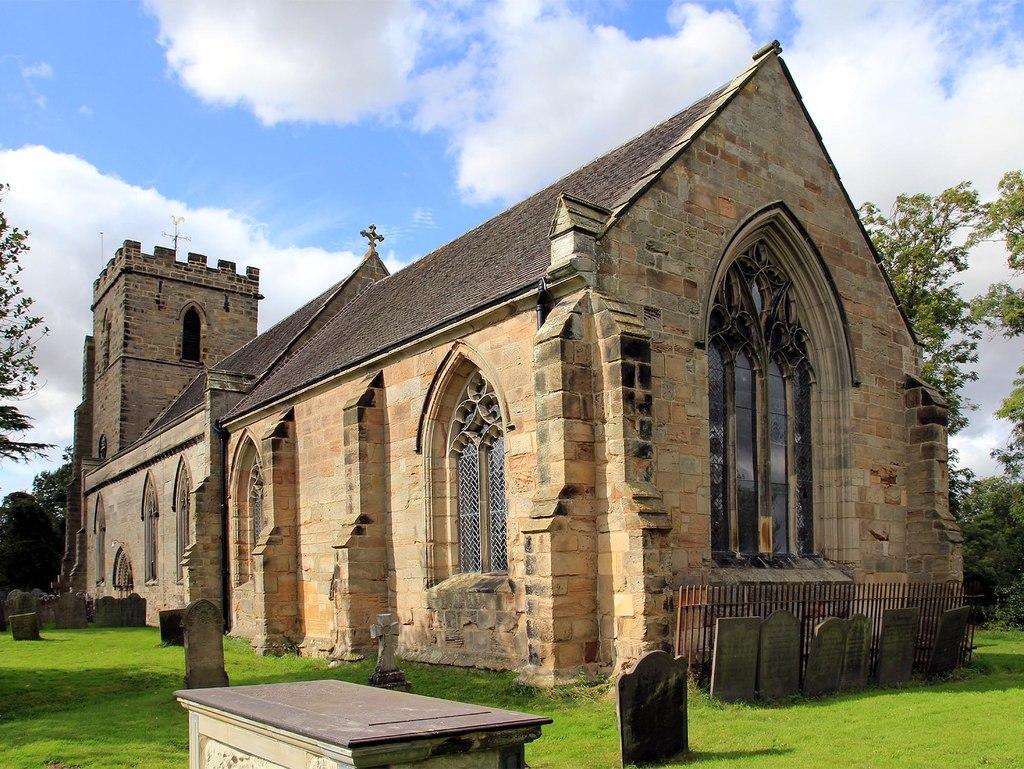One of the main ways we help keep the UK’s churches open and in use is through our grant awards. Last year we gave £5.1 million of funding for vital church repairs, maintenance, and new facilities.
At a time when funding for churches is in short supply, partly due to the loss of income during COVID-19, our grants are increasingly important. In a new feature on our website, we'll be bringing you regular news of how our funding is making a difference to churches and the people who use them.
This month we look at Holy Trinity church in the Leicestershire village of Norton Juxta Twycross.
The village of Norton is recorded in the Domesday Book the Lord of the Manor listed as the famous Lady Godiva.
The church probably sits on the site of an earlier Saxon building.The church seen today was built in the early 14th century but was heavily restored around 1841. Holy Trinity features gargoyles and animal and human faces on some of the windows’ arch mouldings, a stone font and a full set of 19th century box pews.
Today Holy Trinity serves its small community with regular services and a range of community events including carolling in winter.
Holy Trinity was one of 32 churches we were able to fund in 2021-2022 with £3.6 million provided by the Heritage Stimulus Fund, part of the Government’s Culture Recovery Fund.
“Without the National Churches Trust we would have still had an ever-worsening roof and collapsing ceilings"
Holy Trinity applied to us in early 2021 for funding to help with essential work to repair the church roof, rainwater goods and structure. Thanks to the Heritage Stimulus Fund, we were able to offer Holy Trinity a grant of £71,626, a significant increase on their initial application for £20,000.
Kate Rounce, Church Support Officer at the National Churches Trust explains: “The Heritage Stimulus Fund has been invaluable for churches such as Holy Trinity as it has enabled vital repairs to be completed at a particularly challenging time for church communities.”
“Many churches struggled to raise funds for essential building repair projects during the Covid-19 lockdowns and then needed to find additional funds to meet increases in project costs. Through the Heritage Stimulus Fund programme, we have had to meet challenging deadlines and to work closely with Holy Trinity to ensure the work was completed on time and on budget. It has been really rewarding to see the church complete its repairs”.
With the work now complete, the church is safe and open for visitors again. Pauline Bee, a spokesperson for Holy Trinity who was closely involved with the project said:
“Without the National Churches Trust we would have still had an ever-worsening roof and collapsing ceilings, potentially closing it even from services. Thank you.”
Despite the challenges of fundraising over the pandemic, the project has drawn enthusiastic support from the community, she said:
“When we sent out a S.O.S. via the village Whatsapp for people to help clean in time for the Thanksgiving service, villagers were glad to help. One had never been in the church before.”
“At the recent village fete we put up boards showing project photographs and many stopped to look and ask about the project."
Since 2007 we have helped over 2,000 churches, chapels and meeting houses throughout the UK stay open and in good repair, preserving their heritage and enabling them to continue as vital community buildings.
You can find details of some of the churches we have helped on our website:
https://www.nationalchurchestrust.org/church/find-a-church?show_supported_churches=1

